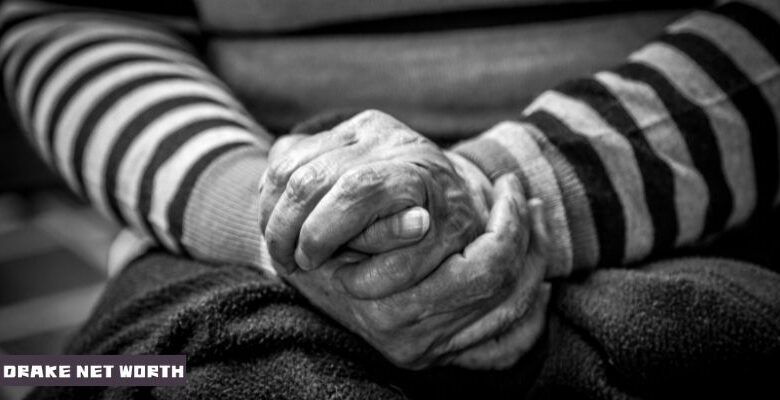Elder Care or Elder Scare? Addressing Nursing Home Abuse

Imagine a place meant to provide care in the twilight years of life, where loved ones are entrusted to receive the support they need. What if you discover that instead of safety and compassion, this very place harbors neglect, abuse, and exploitation?
This stark reality is the unsettling truth faced by many families whose elders reside in nursing homes around the world. The phrase “elder care” evokes notions of respect, dignity, and attentive support.
Yet, behind closed doors, a darker narrative often unfolds. Here, vulnerable seniors are subjected to mistreatment that ranges from physical harm to emotional trauma and financial manipulation.
These acts raise pivotal questions about the integrity of our elder care systems. WHO notes that cases of abuse are common in nursing homes and elder care facilities. According to the organization, 2 out of every 3 nursing home staff members report committing abuse.
Our goal today is to address the disturbing trend of growing nursing home abuse across the world.
Types of Abuse Older People Commonly Face In Nursing Homes
Ever wondered what goes on behind those pastel-colored walls and comforting smiles in nursing homes?
Unfortunately, it’s not always sunshine and warm blankets. Seniors, who should be treated with the utmost respect and care, sometimes endure situations that are downright unacceptable. Let’s take a look at some of the common types of abuse older people face in nursing home settings:
Emotional or Psychological Abuse
According to WHO, the emotional or psychological abuse faced by older people is the most prevalent type of nursing home abuse. Imagine feeling worthless or afraid, day after day. It’s a silent suffering that erodes the spirit, undermines confidence, and robs individuals of their sense of dignity.
TorHoerman Law notes that the most common kinds of emotional abuse elders suffer include intimidation, verbal harassment, isolation, and humiliation. Such abuse can easily make them anxious or depressed, leading them down the path of psychological damage.
Physical Abuse
Imagine being handled roughly or restrained without cause. Physical abuse in nursing homes can range from improper handling to outright assault. It’s heartbreaking to think about our elders, whose fragile bodies deserve nothing but gentle care, experiencing such mistreatment.
In May 2024, an employee of Addington Place of Edwardsville – an assisted living community – was charged with aggravated battery. Timothy Crisel, the 33-year-old employee, had struck a 95-year-old resident of the community with his hands, causing injury. Shortly after his arrest, Crisel was ordered released from custody, with no further comments made.
Perhaps the assaulter wouldn’t have gotten off so easily if the victim – or someone from his family – had filed a personal injury lawsuit against him. If you – or a loved one – ever find themselves in a similar situation, you must not make such a mistake.
It not only lets the criminal off the hook but also encourages them to boldly commit such crimes again. If the lack of legal knowledge holds you back, hiring an Edwardsville personal injury lawyer can make it easier for you. They’re trained specifically for such cases and simplify the whole process for you.
Financial Abuse
Picture this: a lifetime of savings set aside for retirement, is now at risk of disappearing into the hands of someone unscrupulous. Financial exploitation in nursing homes is a betrayal that goes beyond dollars and cents. It strikes at the very core of trust and security.
Seniors, often reliant on others for assistance with finances, can fall victim to a range of deceptive tactics. In cases of financial abuse, it’s found that over 90% of them are committed by either their family members or primary caregivers. It is because only those trusted by the seniors have the knowledge of their finances that can be used to rob them.
Financial abuse in nursing homes thrives on vulnerability. It preys on those who may be physically frail or mentally compromised, trusting their caregivers to act in their best interests. Instead, they find themselves victims of schemes that drain their resources and leave them financially destitute.
Sexual Abuse
Sexual abuse in nursing homes is the ultimate betrayal of trust and a desecration of dignity that no elder should ever endure.
It can take various forms within these supposed havens of care. It might involve inappropriate touching, unwanted sexual advances, or coerced sexual acts under the guise of caregiving.
For seniors who rely on caregivers for intimate assistance, the boundary between necessary care and exploitation can become blurred. This ends up leading to feelings of shame, confusion, and trauma.
The 2023 incident that took place in an Oldham Care Home in Manchester serves as a cruel example. On January 1, 2023, Jake Astley – a presumed homeless man – entered the care home’s premises with a knife in his hands.
There, Astley sexually assaulted a 79-year-old woman. Police officers arrived at the scene after they received the complaint, and took the man into custody.
Meanwhile, the senior was provided support and treatment at the Saint Marys Sexual Assault Referral Centre (SARC). After his trial, Astley was sentenced to 14 years in prison. And while that might seem like justice to some, it did little to comfort his victim.
Neglect
While it might sound benign compared to other types of abuse, neglect can be just as damaging. It’s a blatant failure to fulfill the basic promise of care that our elders deserve in their twilight years.
Neglect manifests in various ways within the walls meant to provide sanctuary for our seniors. It could be as seemingly benign as delayed responses to calls for assistance, resulting in discomfort and distress for residents who depend on timely care.
For elders already grappling with health challenges, neglect exacerbates their vulnerabilities and undermines their dignity. A similar, gross case of neglect in the Bristol Nursing Home was brought to light in 2024. Marcus Hanlin, a 57-year-old resident with Down Syndrome, ended up losing his life to it.
Hanlin was on a support plan that required 24-hour supervision, despite which he was left alone in a room. When left in the dining room with a bowl full of colored rice, Hanlin started eating it, not knowing that a conker was hidden inside. It was for a sensory activity concerning other residents, which ended up costing Hanlin his life.
While the trust that runs the care home apologized to Hanlin’s family repeatedly, it couldn’t bring back what was lost already.
Frequently Asked Questions (FAQs)
What are the common health issues faced by the elderly in nursing homes?
Most elders living in nursing homes struggle with chronic health conditions, such as diabetes, thyroid, arthritis, or some kind of heart problem. Due to their weakened muscles and bones, fall accidents are a common occurrence in these homes. Other health conditions include cognitive ones like dementia, delirium, Parkinson’s, and Alzheimer’s.
What are the major causes of nursing home abuse?
Understaffing is a significant cause of nursing home abuse, leading to overworked and stressed caregivers, and inadequate training, resulting in poor handling of residents’ needs. Furthermore, lack of proper oversight and regulatory enforcement also allows abusive behaviors to go unchecked.
How do I find a good nursing home for my parents?
Researching and visiting multiple facilities is the first step to determining a good nursing home for your parents. This gives you more options to compare and find a better fit. On your visits, look for cleanliness, friendly and attentive staff, and appropriate staff-to-resident ratios.
Elder care is a sacred responsibility, yet nursing home abuse shatters the trust placed in these institutions. From physical and emotional harm to financial exploitation and neglect, the mistreatment of vulnerable seniors is a grave issue that demands our attention.



